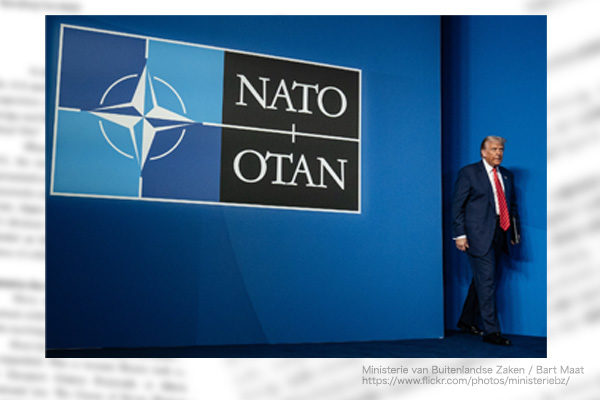Japan cannot ignore what U.S. President Donald Trump said in The Hague, the Netherlands. He said:
“[U.S. military strikes on Iran] ended the war. I don’t want to use an example of Hiroshima. I don’t want to use an example of Nagasaki, but that was essentially the same thing. That ended that war.”
Japanese are usually reserved and courteous, delivering only modest messages to the world. Partly because Japan lost the war, Japanese people often bite the bullet in dealing with the United States. But if the rhetoric goes that far, then we must clarify Japan’s stance.
Attacks on Iran fundamentally differ from those on Hiroshima and Nagasaki
The U.S. persistently condemns Japan’s Pearl Harbor attack. Due to the fact that Japan’s declaration of war was delayed until after the launch of the attack due to a mismanagement at the Japanese embassy in Washington, then U.S. President Franklin D. Roosevelt condemned it as a “dastardly attack.” However, Japan’s attack was limited to military bases in Hawaii.
As Japan moved toward defeat after nearly four years of fierce fighting, it sought a path to ceasefire and surrender through the mediation of the Soviet Union. The U.S., as a party to the Yalta Conference, should have known a Soviet-mediated ceasefire had failed to be realized due to the Soviet betrayal.
While Japan was seeking a surrender, the U.S. carried out nuclear attacks on Hiroshima and Nagasaki, killing more than 200,000 people combined within the year. The cities were not military bases, and most of the victims were civilians.
The claim that the attacks on Hiroshima and Nagasaki were necessary to end the war and are essentially the same as the strikes on Iran’s nuclear facilities is completely unacceptable to the hundreds of thousands of Japanese who lost their relatives and to the nation of Japan. While the U.S. strikes on Iran were clearly limited to nuclear facilities, nuclear attacks on Hiroshima and Nagasaki, as well as earlier air raids on many other cities in Japan, were primarily aimed at towns where ordinary people lived. The strikes on Iran’s nuclear facilities suspected as seeking to produce nuclear weapons differ fundamentally from attacks on Japan, which was trying to find a way to surrender, and on its towns and people living there.
Ishiba Should Convey Japanese Opposition to Trump
When remarks such as these, which lack a fundamental understanding of the historical reality, are made by an ally, it is only natural that we feel bitterness and strong opposition. Both as the nation and as the people of Japan, we firmly urge the U.S. to reflect deeply on the president’s remarks, which are utterly unacceptable.
Prime Minister Shigeru Ishiba is someone who values logical reasoning. Trump’s remarks touched upon the most sensitive point lying at the bottom of the bond between Japan and the U.S. that is not usually brought to the surface. Precisely because it is such an important matter, sincere efforts must be made to ensure no lingering resentment remains.
Japan and the U.S. are now at a juncture where they must establish a broader and stronger alliance than ever before. It is the strong bond between our two nations that serves to deter the threat from China and guide the world toward peace. That is precisely why Japan should frankly tell the U.S. the reasons behind, and the depth of, Japan’s and its people’s opposition to Trump’s remarks. Only then can a truly robust Japan-U.S. alliance be realized.
Yoshiko Sakurai is President, Japan Institute for National Fundamentals.


